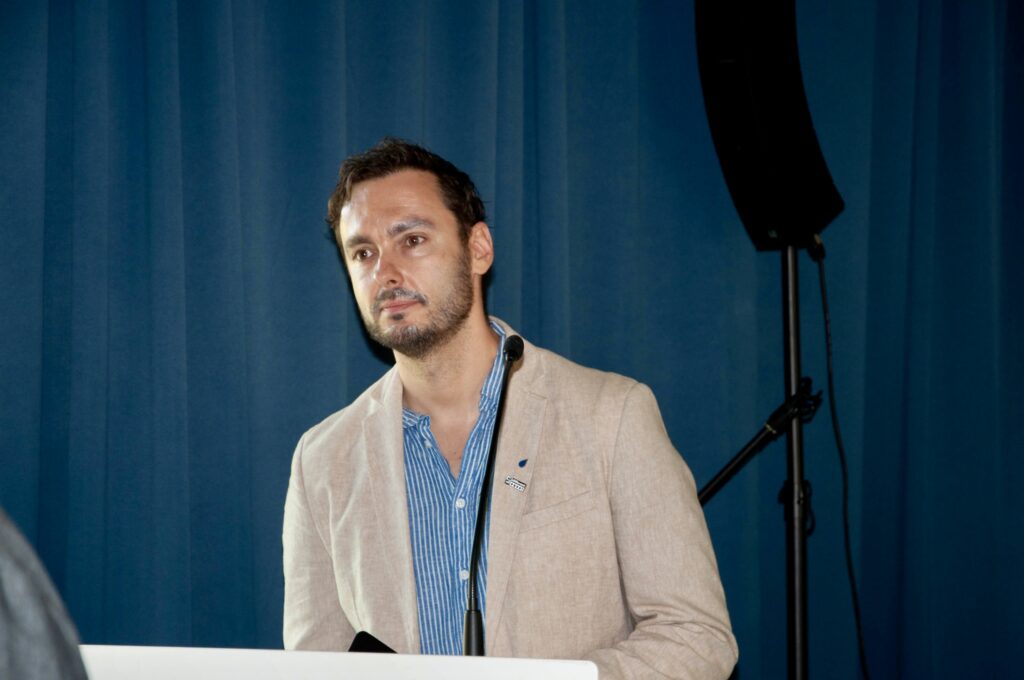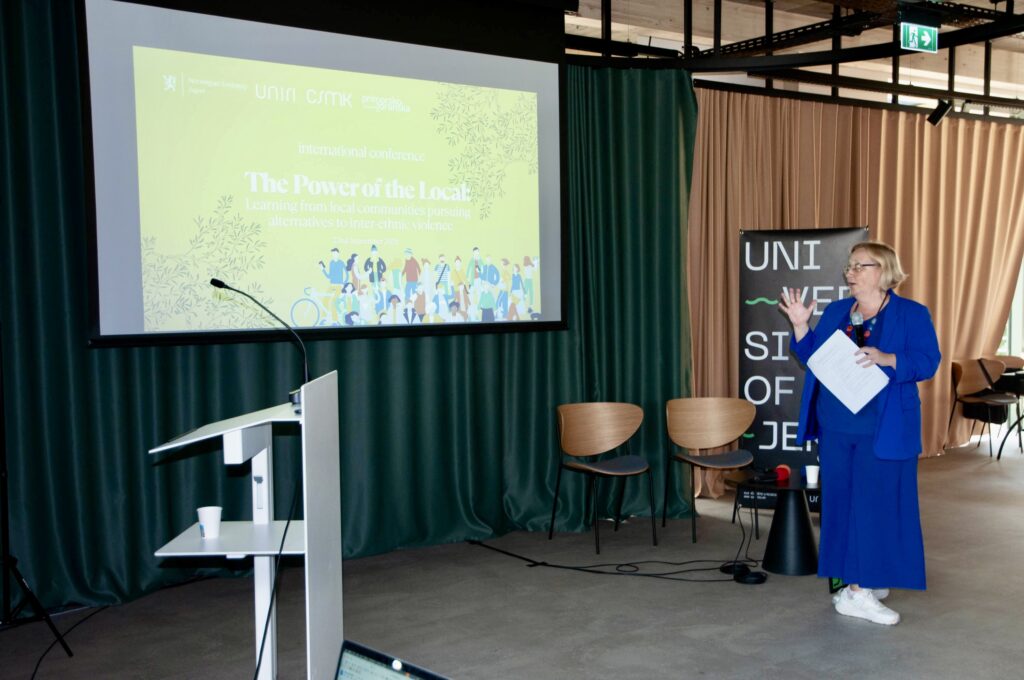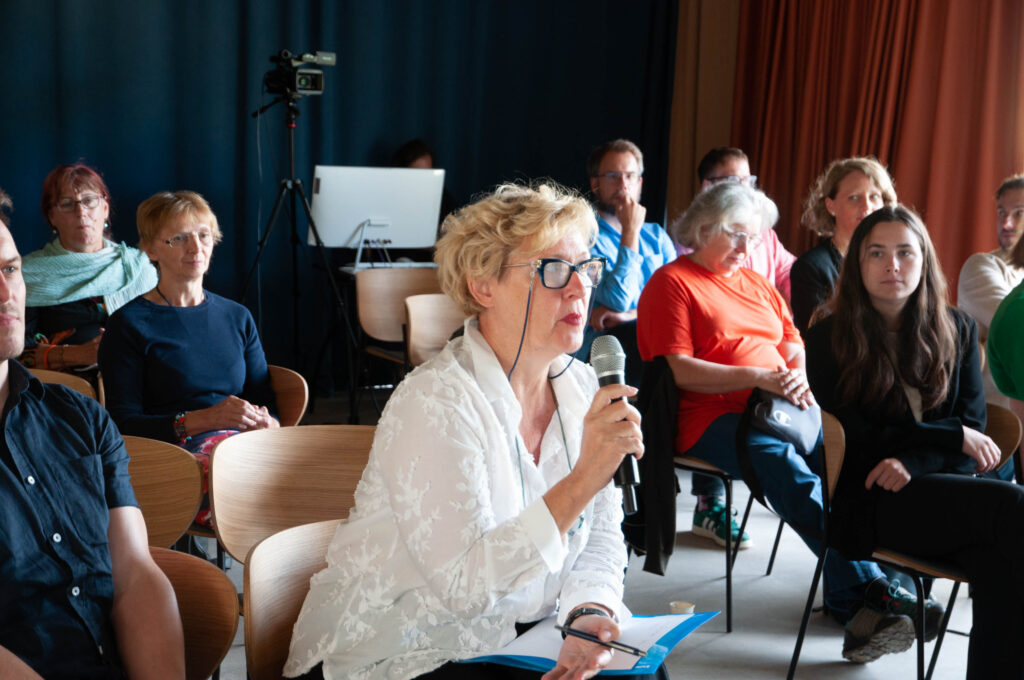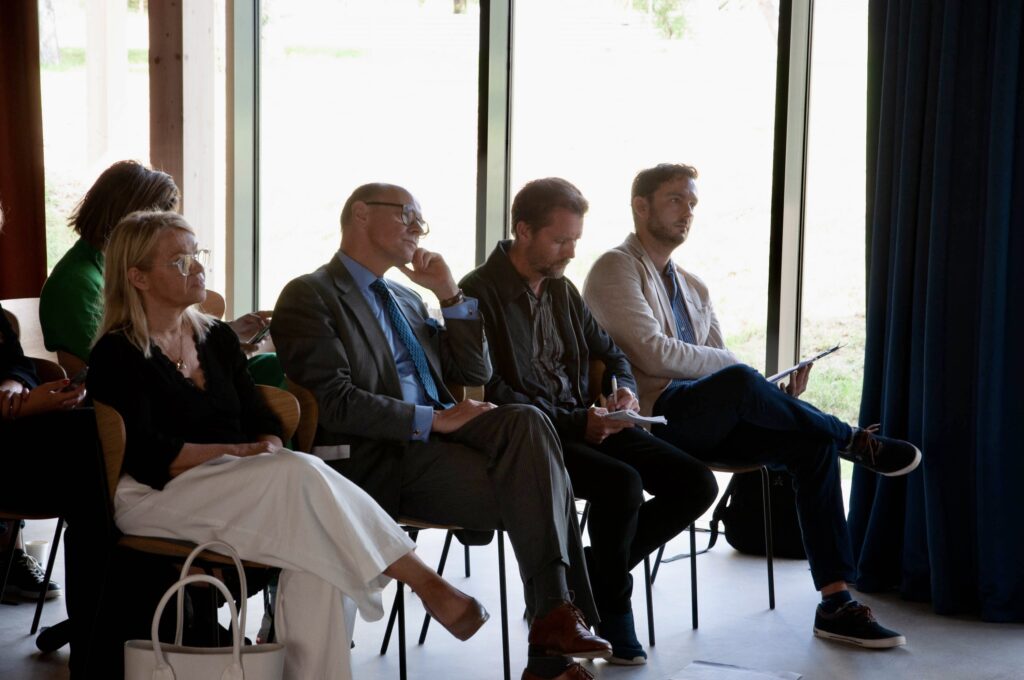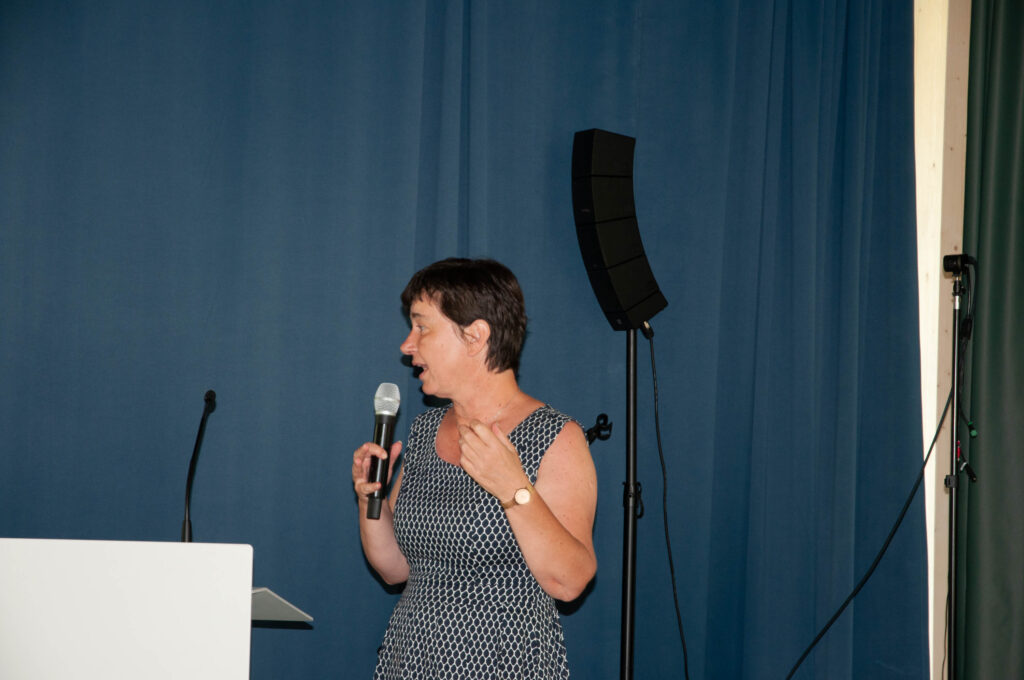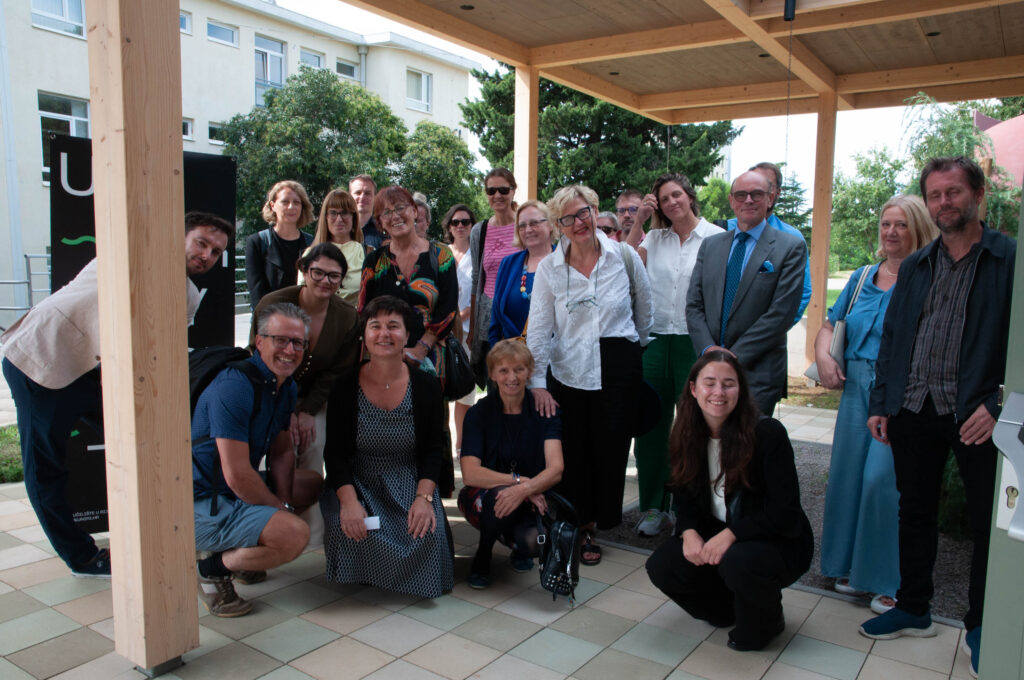Organized by the Center for Peace and Conflict Studies at the University of Rijeka, the international conference The Power of the Local: Learning from local communities pursuing alternatives to inter-ethnic violence, gathering scholars and activists, was held on Monday, September 22, 2025. Supported by the Embassy of Norway in the Republic of Croatia and under the patronage of the Primorje-Gorski Kotar County, the conference gathered over 50 participants from around ten countries.
After the opening remarks by the acting Vice-Rector for Science, Arts and Digitalization at the University of Rijeka, Prof. Dr. Senka Maćešić, and the Norwegian Ambassador to Croatia, H.E. Arne Sannes Bjørnstad, the conference began with a keynote lecture by Prof. Dr. Dinka Čorkalo entitled When the War Ends: Rebuilding Lives, Rebuilding Communities.
Drawing on years of work in war-affected communities in Croatia, Dr. Čorkalo—full professor at the Department of Psychology at the Faculty of Humanities and Social Sciences, University of Zagreb, and a renowned expert in social psychology and sociology of peace and conflict—highlighted the immense, while often overlooked, challenges faced by war-affected communities, such as the city of Vukovar, even decades after the end of war.
“Contrary to the common saying, time alone does not heal wounds, and social dynamics in post-conflict communities tend to maintain—and even reinforce—ethnic divisions,” emphasized Prof. Dr. Čorkalo.
Precisely because of the heavy tall paid by communities and entire societies, it is essential to prevent war as well as other forms of violence. The first panel of the conference showcased how this can be done at the local level, focusing on resistance to identity-based violence in the former Yugoslavia. Researchers from the University of Ljubljana, Dr. Faris Kočan and Dr. Rok Zupančič, presented insights from their work in the community of Baljvine (Bosnia and Herzegovina), where no conflict erupted between Serb and Bosniak residents during the war, and in the town of Kamenica (Kosovo), known for its relatively peaceful Serb-Albanian coexistence. Dino Šakanović, a doctoral candidate at the University of Sarajevo, spoke about commemorative practices in Tuzla, which—unlike most in Bosnia and Herzegovina—are largely free of nationalist overtones. Dr. Valentina Otmačić from the University of Rijeka presented the case of the Gorski Kotar region, where the local community, even during the 1991–1995 war, demonstrated that “their intolerance is directed solely toward the war,” as local Serbs and Croats wisely maintained cooperation and peace.
The second panel highlighted examples of resistance to violence from Israel/Palestine, Pakistan, Cyprus, and Northern Ireland. Isabela dos Santos, a doctoral candidate at the University of Toronto, presented key findings from her research on the Wahat al-Salam / Neve Shalom community, where Jewish and Arab residents have lived together for decades.
Ahmadullah Archiwal, a doctoral student at the University of Connecticut, spoke about the nonviolent struggle of women in Balochistan, a region that spans parts of Pakistan, Afghanistan, and Iran. Loizos Kapsalis from the Association for Historical Dialogue and Research (AHDR) in Nicosia discussed the role of history education in overcoming ethnic divisions in Cyprus, while Sean Byers from the organization Trademark Belfast talked about the economic drivers of conflict in Northern Ireland and the role of class struggle and trade unions in peacebuilding.
In the final part of the conference, participants reflected on the key insights triggered by the presentations and discussed potential concrete actions for the academic, political, and activist communities. Among other points, they emphasized the need to better document and promote examples of good practices at the local level and to formally recognize the individuals involved. The importance of local leadership in fostering nonviolent environments was recognized, as was the need to address the structural causes of war and violence. Finally, participants agreed that it is crucial to move beyond the usual habit of finger-pointing and shifting blame by taking personal responsibility and actively contributing to peacebuilding at all levels.
